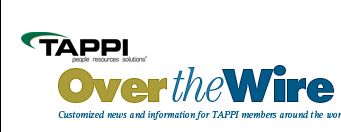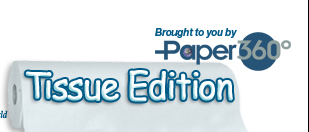Sustainability Issues: Do Pressures to Become More Sustainable Have a Real Impact on the Industry?
 Print this article | Send to Colleague Print this article | Send to Colleague
By Lindsay Gervais, Consultant at Pöyry Management Consulting
Following accusations of Asia Pulp & Paper’s (APP) deforestation in Indonesia, now eight large retailers have decided to stop carrying the Paseo tissue products manufactured with APP virgin fiber. Among the retailers are Kroger, BI-LO, Brookshire Grocery Co., K-Mart, and Weis Markets.The actions taken by these retailers are a clear illustration of how customers have come to value responsible and sustainable forestry management.
This is not the first time a tissue producer has been criticized for its sustainability practices. Beginning in 2007, Greenpeace introduced the "Kleercut" campaign, pressuring Kimberly-Clark to use more recycled fiber content in its tissue products. In 2009 Greenpeace announced that it would end the "Kleercut" campaign as K-C promised that 40% of fiber will be recycled or FSC certified by the end of 2011. Since then, Kimberly-Clark has launched its Scott Naturals product line that contains 40% recycled fiber, exited pulp manufacturing, and continues to market a greener image.
Other criticized companies, including P&G and Georgia-Pacific, have responded in a different way, working towards FSC certification so as to not sacrifice the premium quality of their products.
Regardless of whether or not the accusations hold true, APP, to recapture the lost business, has already begun to provide customers with more visibility into the sustainability of its operations in Indonesia.
AP’s Presence and Growth in the U.S.
Through its subsidiaries Solaris Paper and Mercury Paper, APP established a physical converting presence on both U.S. coasts. Since 2007, the company has aggressively marketed its brands Paseo (at-home) and Livi (away-from-home) in the U.S. through a marketing arm called Oasis Brands. Pushing a strategy of "locally produced, but globally sourced," APP sourced its virgin parent rolls from its mills in Indonesia to support its converting operations in the U.S.
Before long, Paseo became one of the fastest growing bath tissue brands in the U.S., with ramping up capacity at its facility in Virginia (Mercury Paper) by the end of 2011. It is no doubt that the recent public outcry for more visibility into APP’s practices has dampened this impressive growth. However, APP along with Oasis Brands is already taking steps to mitigate the impact on the bottom line.
APP’s Response
Oasis Brands and APP have invited large U.S. grocery chains to participate in an independent sustainability audit of its products that are manufactured using fiber from Indonesia, stating that the products come from sustainable resources.
Oasis Brands has also emphasized that its suppliers must "...demonstrate a commitment toward sustainable forest practices, following 100% legal compliance of the country of origin and/or obtaining industry recognized certification from such groups as The Program for the Endorsement of Forest Certification (PEFC) and The Indonesian Ecolabeling Institute (LEI)."
Industry Impacts of Sustainability Pressures
Criticisms around unsustainable forestry management practices have long been around in the tissue industry. Other market fundamentals will also come into play, however. Recycled fiber has actually lost market share due to the popularity of premium quality tissue products manufactured using TAD technology for the at-home segment. The cost and availability of sorted office paper (SOP) may also hinder the use of recycled fiber. With demand for printing and writing papers in structural decline, there is some uncertainty regarding the volume of SOP that will be available in the long-term and how much it will cost as supply is limited.
Regardless, consumers today are more informed and there is real value being placed on environmentally friendly and sustainable practices. Sustainability is becoming the industry standard.
The author of this report can be contacted at lindsay.gervais@poyry.com
   
|

